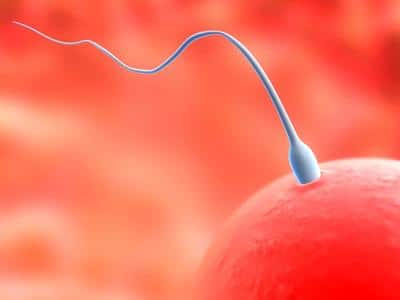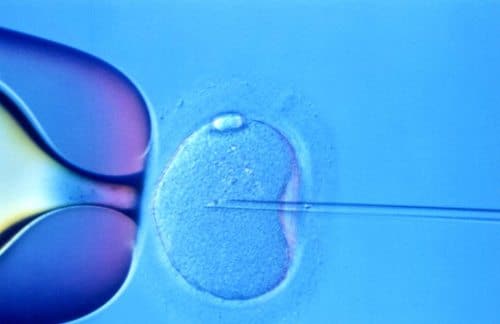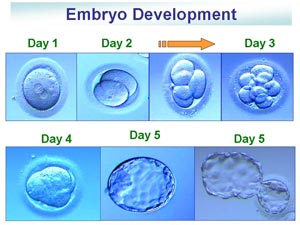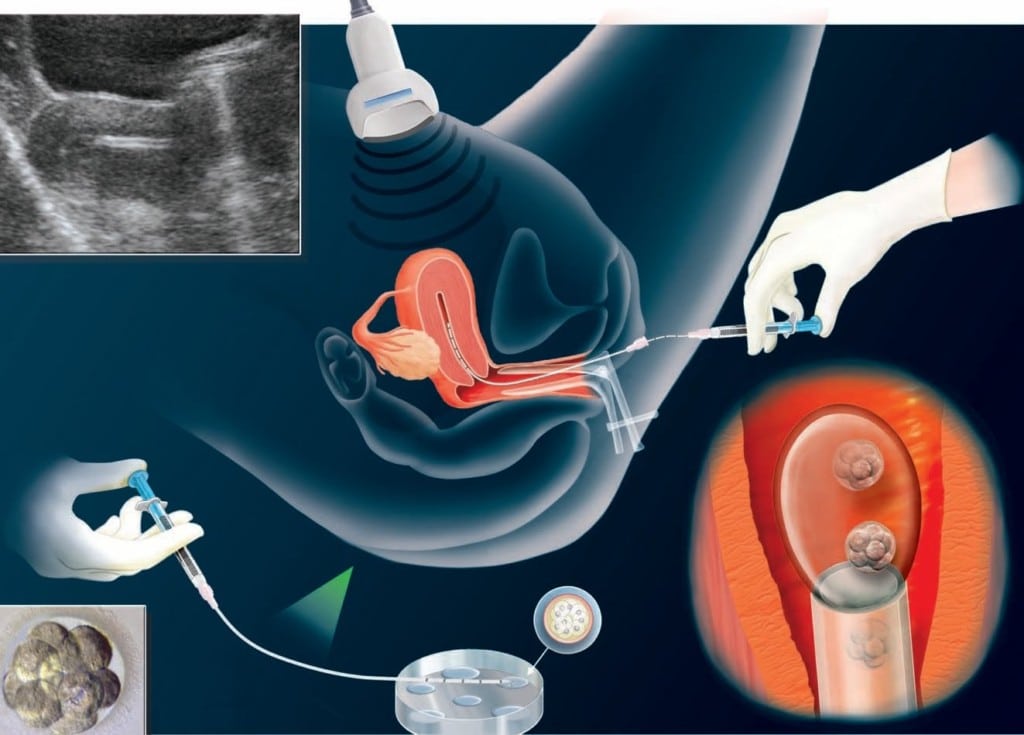The fundamental part of every treatment that Team Miracle offers at Cyprus IVF Centre is the IVF ( IVF in Cyprus ) process itself. Whether you are having a tandem cycle, sperm donation or perhaps pre-implantation genetic diagnosis ( PGD ) for gender selection, IVF with ICSI will still occur.
In 1977, the world’s first successful IVF baby was created in the UK and since then hospitals around the wold have strived to help patients with fertility problems and the global network of fertility specialists continue to innovate and develop this extremely important area of medicine.
At first, IVF in Cyprus was only used for women who could not conceive naturally due to blocked tubes or other physiological problems with the womb. However, IVF treatment in North Cyprus has now been carried out for more than 30 years and today, Team Miracle at Cyprus IVF Centre are one of the best IVF units in the world. IVF is used as an effective treatment for infertility caused by various factors including endometriosis, blocked fallopian tubes, male factor infertility, low sperm count or motility, advanced maternal age, reduced ovarian reserve and unexplained infertility. It is also used for individuals with no fertility problems at all, as the foundation for PGD gender selection in Cyprus.
IVF is a complex area of medicine and there are a number of factors which work together to influence IVF success rates. The skill of the fertility doctor, the techniques and equipment used, the egg and sperm quality and the quality of the endometrium are all important variables which will affect your result. When we perform IVF at Cyprus IVF Centre, we ensure that every single factor is meticulously dealt with to the best of our ability in order to maximise your chance of pregnancy.
IVF with ICSI – Getting Started
So if you are interested in proceeding with IVF treatment in Cyprus with Team Miracle, you will be wondering how to start your treatment.
Stage 1 – First Enquiry and Communication for IVF in Cyprus
The very first stage of your IVF journey is to complete our contact form or send a direct email to info@cyprusivfcentre.com. One of our friendly and experienced coordinators will receive your enquiry and give you full details regarding the treatment, process, medication, scheduling etc. At this stage, it’s important to get answers to all of your questions so that you are fully comfortable and relaxed by the time you arrive for the IVF in Cyprus. Please ask anything that comes to mind, no matter how silly or insignificant it may seem. We take every question seriously and we understand that you may never have arranged a fertility treatment abroad. That is why we are here to help.
Stage 2 – Fertility testing
Since you would like to your own eggs (see our Egg Donation page for details relating to the use of egg donors), there are some fertility tests that you will need to have before treatment can begin. All of the tests must be carried out on day 2, 3 or 4 of your period between 1 and 6 months before you intend to fly to Cyprus.
The required tests are as follows:
Hormone Blood Tests
- FSH (follicle stimulating hormone)
- LH (luteinising hormone)
- AMH (anti-mullerian hormone)
- TSH (thyroid stimulating hormone)
- E2 (estradiol)
- Prolactin
Ultrasound Scan
1. Trans-vaginal Antral Follicle Count
These can be done by your own GP/family doctor. However, if you don’t want to involve them for personal reasons then you can contact any private fertility clinic in your local area and they should be happy to assist. We have partner clinics in numerous locations within the UK and also other countries worldwide so please ask your Team Miracle coordinator for details of our partners if you are unsure of your options.
When you receive the results of your tests, you email them to your coordinator and they will discuss everything with the doctor who will confirm that you can proceed with IVF treatment using your own eggs.
If you would like to come to Cyprus IVF Centre for your full treatment including testing then you can travel to Cyprus on day 1 of your menstrual cycle and remain here for approximately 20 days.
Stage 3 – Medical Information Form and Deposit Before IVF in Cyprus
Once you have asked all your questions and decided that you would like to proceed with IVF in Cyprus, our patient coordinator will email you a Medical Information Form to complete. At this stage, you are required to pay a deposit of £200/200 Euros to secure your treatment. Deposits are non-refundable and are valid for 6 months from the date of receipt.
Stage 4 – Getting Your Medication
By stage 4 of the process, you will have completed your fertility tests, returned the medical information form to the patient coordinator and you will have paid the deposit to reserve your treatment space. You will have an idea of which month you would like to attend for IVF and ICSI treatment with Team Miracle and you might even have planned your exact treatment dates. We recommend that all patients take a combined oral contraceptive pill to regulate the menstrual cycle. This is not compulsory and we are very flexible with regards to period start dates but taking the pill does make it easier for patients to plan in advance, get time off work and arrange flights.
Team Miracle will send you a prescription for the drugs that are required prior to your IVF treatment in North Cyprus. You can use this prescription to get the medication from your local pharmacy. If you do not want to use a local pharmacy or the cost of medication is expensive then you can order the medication from our distributor in UK who supplies the medication at Cyprus prices and can deliver worldwide. Certain countries including Ireland, the Netherlands amongst others, operate subsidised medication schemes and we can assist patients with obtaining medication for free or low cost through those programs.
Along with the prescription, Team Miracle’s specialist IVF doctor will prepare a unique treatment protocol which is individualised for every patient and provides specific instructions regarding what medication to take and when to take it. The protocol is designed in an easy to understand calendar format so you won’t get confused.
Don’t forget, you can phone or email your coordinator at anytime if you have questions or simply need some reassurance.
What medication do I need to take prior to coming to Cyprus?
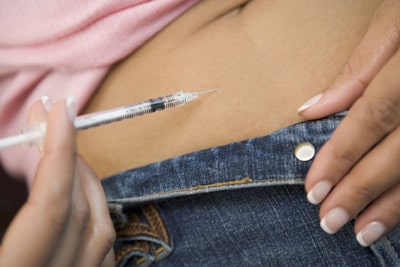 The first medication that you will need to use is known as gonadotropins. These are administered in the form of subcutaneous injections and their purpose is to stimulate (grow) any antral follicles that are waiting dormant in your ovaries at the beginning of the treatment cycle. The doctor usually prescribes Menogon, Menopur or Gonal F for the medication protocols. The dose for each patient varies and will be directly related to your fertility status. Regardless of whether you are on a high or low dose, you will only administer one gonadotropin injection daily from day 2 until day 11 of your menstrual cycle.
The first medication that you will need to use is known as gonadotropins. These are administered in the form of subcutaneous injections and their purpose is to stimulate (grow) any antral follicles that are waiting dormant in your ovaries at the beginning of the treatment cycle. The doctor usually prescribes Menogon, Menopur or Gonal F for the medication protocols. The dose for each patient varies and will be directly related to your fertility status. Regardless of whether you are on a high or low dose, you will only administer one gonadotropin injection daily from day 2 until day 11 of your menstrual cycle.
The second medication that you require is Cetrotide. This is a gonadotropin releasing hormone antagonist. It suppresses pituitary and ovarian hormone production and, to put it simply, it prevents ovulation. Cetrotide is important because we don’t want you to ovulate and release your eggs before you come to Cyprus IVF Centre. It will be administered in the same way as the previous medication, in the form of one subcutaneous injection, from day 6 until day 11 of your treatment cycle when the follicles are approximately 12 – 14 millimetres in size.
What medication do I need to take while in Cyprus?
When you arrive in Cyprus, the doctor will determine whether you need to do any additional stimulation prior to the egg collection. This is assessed by way of a trans-vaginal ultrasound scan.
Stage 5 – Coming to Cyprus
You should arrive in Cyprus on day 10 of your treatment cycle, 9 days after your period starts, (unless you are coming to us for the entire treatment in which case you will arrive on day 1 of your period).
The day after you arrive for your IVF in Cyprus program, you will attend Cyprus IVF Centre. You will be contacted on the evening of your arrival by your Team Miracle coordinator to let you know your appointment time for the following day and what time you can expect the chauffeur in the morning.
At your initial appointment, you will meet the members of Team Miracle including the doctor and our International Patients Coordinators, Umit, Nicole or Hakan.
As mentioned previously, you will have a trans-vaginal ultrasound scan to check that your follicles have developed in accordance with the plan. The doctor will measure the follicles and decide whether you need any additional stimulation or whether you are ready for the HCG hatching injection (Pregnyl or Ovitrelle) which is given to finalise the maturing process. Ideally the majority of the follicles should be 18mm – 20mm when the HCG injection is administered. If the scan shows that your follicles are smaller than desired, you will simply have an additional day of stimulation.
If you are ready for the HCG injection, you will be provided with the medication and you will be given an exact time to inject it later that evening, usually at approximately 11pm or midnight.
Stage 6 – Egg Collection For IVF in Cyprus
Egg collection occurs exactly 36 hours after the HCG injection is administered. The driver will collect you from your hotel at approximately 10am and you will be taken to Cyprus IVF Centre. You are not allowed to eat or drink from midnight the previous evening as you will require a sedative during the egg collection process.
On arrival at Cyprus IVF Centre, a member of Team Miracle will show you to a private bedroom where you can prepare for the procedure. All of our 28 rooms are equipped with a full electric hospital bed, LCD television, fridge, sofa or armchair and an en-suite toilet.
A nurse will provide you with sterile garments that you must wear during the egg collection. You’ll be given a disposable gown, hair net and plastic shoe covers which should be worn over bare feet or socks. You should remove all jewellery and piercings.
When it is time for the egg retrieval, a nurse will take you from your bedroom into the operating theatre and you will be made comfortable on the operating bed. The Cyprus IVF Centre anesthetist will administer a sedative and you will sleep throughout the entire procedure.
The doctor will collect your eggs via ultrasound guided follicle puncture and they will be immediately transferred to the laboratory where the fertilisation stage of your IVF in Cyprus journey will begin.
Simultaneously to the egg collection, the male partner will need to provide a semen sample. (If you are using donor sperm, this will be thawed and prepared.) We recommend two or three days of sexual abstinence prior to providing the sperm sample so that we can obtain the best quality possible. A good guide is for the male partner to ejaculate on the morning of your first scan in Cyprus. This is usually 2 days prior to egg collection and if you require an additional day of stimulation then the sperm will be 3 days old which is also fine.
In the past, and still today at hundreds of clinics around the world, the sperm is placed into a sterile dish containing the egg and fertilisation is expected to occur. At Cyprus IVF Centre, we want to maximise the fertilisation rates and so we operate in a different way to utilise the most modern advances in technology and research. The Team Miracle embryologists analyse the sample and it is washed using a special solution of nutrients in order to isolate the more motile sperm. At Cyprus IVF Centre, we use the ICSI procedure for free with every single IVF treatment because it dramatically increases the number of eggs that will fertilise. Please see (ICSI) for more information.
Stage 7 – Embryo Development
After the ICSI procedure is completed, the eggs are incubated for a period of twenty four hours. The day after the egg collection and ICSI, the embryologist will establish if fertilisation has occurred. The pronuclear stage (PN) is where the egg has successfully fertilised and the two pronuclei are seen in the cell, representing chromosomes from the mother and the father. You will be contacted by one of the patient coordinators to advise you on the fertilisation rate and number of PN embryos.
Over the next few days, the embryos will be left to develop. Our embryologists prefer to have as little contact with the embryos as possible while they are developing because when the embryos are removed from the incubator, the humidity and temperature will change and this change can affect their development.
We do however offer the Embryoscope facility to patient who wish their embryos to have constant monitoring during the development. Please see EmbryoScope+ for further information. https://cyprusivfcentre.com/embryoscope-plus-at-cyprus-ivf-centre/
While your embryos are busy developing in the Cyprus IVF Centre laboratory, you can use the time to enjoy your holiday, relax and get as much of the beautiful Cyprus sunshine as you can knowing that your future babies are in safe hands.
Stage 8 – Your Embryo Transfer
As a general guideline, roughly 80% of the pronuclear embryos will continue to develop in Team Miracle’s laboratory and, on the third day post egg collection, they will be comprised of 8 cells. At this point, our doctor will decide whether she is going to do a 3 day transfer or wait until the 5th day of development before returning your embryos back to you by weighing up the pros and cons for each option.
Wherever possible, when you have IVF in Cyprus with Team Miracle at Cyprus IVF Centre, we will aim to do a 5 day blastocyst transfer. Unlike other clinics, there is no additional cost for this. We believe that it is important to try and do a blastocyst transfer if the conditions allow because the embryonic genome is activated after the 6-8 cell stage and therefore extended culture will highlight embryonic arrest and help identify healthy embryos for transfer, though not all embryos that develop until day 5 will be chromosomally normal. If you want a guarantee of healthy embryos then we must perform pre-implantation genetic diagnosis. Please see PGD for more information.
On embryo transfer day, the driver will collect you from your hotel at a prearranged time and bring you to Cyprus IVF Centre. On arrival, one of the patient coordinators will give you an update on how many surviving embryos you have and what quality they are. You will then have the final decision on how many embryos you would like to transfer. Normally we recommend that you transfer the best four embryos because this gives the best chance of pregnancy with only one IVF cycle. We can also transfer 1, 2 or 3 embryos if that is your preference.
Again, you will be shown to a room and provided with sterile garments that you need to wear during the embryo transfer. There is no sedation given for this procedure so you can eat and drink normally throughout the day. You must have a full bladder for the embryo transfer and so please remember to drink lots of water in the hour beforehand.
Using a vaginal speculum, similar to a pap smear test, the doctor will expose your cervix. He will then clean the vagina and cervical area with a sterile solution. The culture medium containing EmbryoGlue® and the chosen embryos are loaded into a catheter with a syringe on one end. The doctor carefully guides the catheter through the vagina and cervix, and releases the embryos into the uterus under careful ultrasound guidance. The embryos will be placed in the optimum position for implantation, exactly 2cm below the top of the womb.
If you have good quality embryos leftover in the laboratory after the embryo transfer, they can be frozen using vitrification for use at a later date.
You will be transported back to your private bedroom on a trolley and you will need to remain flat for 2 hours after the transfer.
Stage 9 – The Pregnancy Test after IVF in cyprus
On the evening of your embryo transfer you should relax and have as much rest as possible in your hotel. You can fly home on the evening of the embryo transfer but we recommend waiting until the following day. Once you get home you can continue your normal routine, although you must adhere to the “Dos and Don’ts” information document that you will be given on the day of embryo transfer
Twelve days after your embryo transfer, you can have a HCG blood test. At this stage, the blood test is the only way to definitely find out if your cycle of IVF in Cyprus has been a success as it is still too early to get an accurate result with a urine test. The HCG pregnancy blood test can be arranged through your GP or you can make an appointment at a private fertility clinic to have it carried out.
In some countries it is difficult to arrange a HCG blood test and so it may be necessary for you to perform a urine pregnancy test. In this situation you should wait until 14 days after embryo transfer and make sure you use first morning urine.
If the HCG blood test or urine test is positive:
It is important to continue the medication exactly as prescribed for the first trimester. Your hormones are already artificially raised and so you must maintain that level until the placenta is strong enough to support the baby on its own.
You should advise your GP that you are pregnant and you will be registered with a midwife and entered into the program for pregnant women in your country.
At 7 weeks gestation (count 7 weeks from day 1 of your last period) you can have an ultrasound scan to confirm how many embryos have implanted and to check for the foetal heart beat.
If the HCG blood test is negative:
All medication should be stopped. You will experience a bleed approximately one to two weeks after stopping medication once the hormones leave your system.
If the urine test is negative:
You must continue taking the medication for two further days and then repeat the pregnancy test with first morning urine. If the result is again negative then you can stop medication.
Please note that whatever the result, our International Patient Coordinators will continue to provide help, advice and support.

